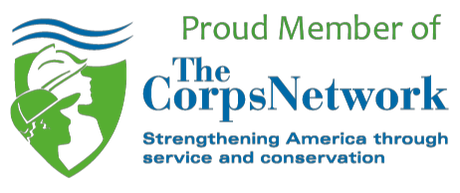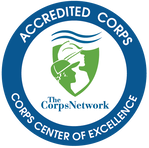It's time to share another interview as part of our Science Stories blog series. Each month, we interview a STEM scholar, student, or community member and ask them things like why they believe the STEM fields are important, how they got started in their field, to what they would do if they hit the jackpot. We hope that our new blog series will inspire, introduce a variety of fields, and create new conversations. Why do you believe that the STEM fields are important? I believe that science is the best tool we have for gaining a complete picture on how the universe operates. This information forms the basis of much of our economy via applied technologies in transportation, medicine and agriculture. Applications for environmental issues are through scientific studies. It also illustrates the human relationships to other life, the earth and our cosmos. How and why did you get involved in the STEM fields? Personal investigations of the biological and cosmological world were always of interest to me. Before I was in first grade I was fascinated with dinosaurs and wanted to be a paleontologist. Can you describe another aspect of your life or career that is influenced or enriched by the STEM fields that people would find surprising? I have had extensive travels in Australia (and other countries) due to my interests in marsupial evolution and biogeography. Originally, I had the intention of a career working in the National Park Service. This was something which I did, but only for four seasons. I also worked seasonally on Japanese and Korean fishing vessels in the Bering Sea for the National Marine Fisheries Service. This position was to function in biological monitoring of the ships while they were fishing in U.S. waters off the Aleutian Islands. In 2011 I received a Fulbright Scholar Award and was able to travel and teach in Asuncion, Paraguay for a semester. But perhaps my greatest surprise is that I have been able to develop a research program, in paleontology, for myself and some of my students while employed as a biology professor at Yavapai College. What inspires you in your current position/role? Seeing my students increase their interest and understanding in science. Reading about new discoveries in science. Finding fossils, working on museum collections in paleontology and connecting with other professionals at science conferences. Have you ever participated in an internship? Yes. I was in the Student Conservation Association and worked as a naturalist and park interpreter for Arches National Park in Utah. This experience did lead to working as a seasonal ranger at Chiricahua National Monument in Arizona and John Day Fossil Beds National Monument in Oregon. What work experiences (past or present) have been the most educational for you, and why? I had a number of seasonal contracts to instruct grade school and middle school students science related topics. This included teaching at the Multnomah County Outdoor School Program, the Oregon Museum of Science and Industry and the Oregon Zoo. These programs were in, or near, Portland, Oregon, and my experience with this increased my enthusiasm for teaching. My graduate work studies focused upon the biogeography of Tasmanian mammals and on the recolonization of pikas (rock rabbits) onto Mount St. Helens. My current work in paleontology is the most educational and rewarding. I have been able to involve many of my students in field and collections work in paleontology. In this work we have made several presentations at paleontology meetings. What project(s) are you currently working on? I am working on a comprehensive listing of the fossil mammal fauna from a late Miocene site (Milk Creek) in central Arizona. Not only have I been able to add three new taxa to the site, along with my students, I have also worked on the history of research at this site. Scientific surveys at the Milk Creek area have been continuous since 1948. Last year we began a survey project of the only recent Cenozoic (latest Miocene or early Pliocene) site at Petrified Forest National Park. My students and I were successful in locating a number of vertebrate and invertebrate materials here. What is something that people might be surprised to learn about you (hobby, skill, interesting story)? I am extremely interested in nutritional studies. I study and synthesize a large number of these, for both personal and class related materials. I love to travel and explore our planet and its natural wonders. I am working on some writing and photography projects. What is the funniest thing that has happened to you recently? This is the most difficult question and I am largely drawing a blank in my recent history. I will offer that I have begun a series of food theme days at my work with a few colleagues. We hand out some self-designed awards for the Cheese and Chocolate Day event. We do so during class and infer, with mock seriousness, of the “prestigious” awards these Professors have won. The responses we receive from my colleagues are largely exaggerated thanks for these “honors.” However, one professor nearly collapsed with the shock of this announcement. She was fine, but we, and her students couldn’t stop laughing at this shocking response. What is the worst job that you had, and what would you tell your past self now? I once worked on door-to-door sales for some magazines, which were supposed to support a non-profit environmental group. I hated trying to encourage people to buy the magazines and felt like I was imposing on them. I don’t know if I would say to skip this, as this experience let me know what not to focus on. However, if I were to give my past self some advice, I would state that I should have minored in geology (I did major in biology) and to pursue graduate research in paleontology and get started in this field earlier. I think I would encourage my past self to take Spanish in high school and to have written a bit more then. You won $10 million in the lotto. What would you do? That is more than enough to quit my current position (which I really enjoy) and work full time in the field and at museum collections in paleontology. I would also spend more time writing and working on projects which are, at present, largely limited by other time commitments. I would no longer be concerned about our two children’s college costs. I would contribute to student scholarships in the Society of Vertebrate Paleontology and to my own universities for student scholarships. I would also contribute to a few friends to help them out. And, of course, I would travel. Other than having more time for the projects I most want to work on, I don’t see a big change in what I plan to do in the future. What’s your favorite book of all-time? There are too many. I generally read science, science fiction and science related biographies. For science, I will indicate In the Day of the Dinosaur, by Roy Chapman Andrews, who inspired me to want to work in paleontology. I would believe that Carl Sagan’s books, and his Cosmos series, re-energized my interests in the study of science and the natural world. In science fiction, I have most enjoyed several works by Isaac Asimov and Larry Niven. I find various science fiction speculations involving either time travel or aliens to be fascinating. I also love reading about historical figures in evolutionary biology and paleontology. And, I might add Edward Abbey’s Desert Solitaire, which inspired me to consider a career in the Park Service and to consider the importance of the natural environment and human interactions. Thanks for sharing! We enjoyed learning more about you and your current projects.
Check back next month for more Science Stories. Want to be featured? Contact us. G.E.M. Environmental is excited to share another new addition to our monthly blog series - Science Stories. Each month, we interview a STEM scholar, student, or community member and ask them things like why they believe the STEM fields are important, how they got started in their field, to what they would do if they hit the jackpot. We hope that our new blog series will inspire, introduce a variety of fields, and create new conversations. Our guest this month is Sarah Vincent, Director of Outdoor Education at Chapel Rock's Aspen Creek Outdoor School, a residential "Science Camp" where school groups participate in safe, fun, and educational activities in a camp setting. Sarah has a B.S. in Earth Science from George Mason University and is currently an M.Ed. student at Prescott College. She has been working in the science and outdoor education fields since 2009. Why do you believe that the STEM fields are important? At the core of science is the inquiry process; a process that I believe is foundational to innovation, democracy, self-esteem, and knowledge. The skills of asking questions about how things work, making observations and researching, forming hypotheses rather than opinions, designing and performing experiments, drawing conclusions and communicating them...these are all skills worth practicing, in any order, at any time. Then repeat. STEM fields are one avenue to use these skills as a means of contributing to society. How and why did you get involved in the STEM fields? I thought a scientist was a tall man in lab coat, that was born a genius, working independently, in a shiny laboratory. I didn't know that building "gnat catchers" in the backyard was engineering, counting rings on snail shells was math, and messing with ant colonies was science. When I saw polar bears at the zoo, and learned about scientists like Jane Goodall, my image of science changed, and so did my interests. How I got involved in STEM was by working hard (I was not born a genius…or tall for that matter), openness to opportunities, collaboration with others, and serendipity. Why I got involved includes a desire to turn the images of “scientist” and “science” on their heads, so as to create a more inviting and inclusive field for all. O and I love it! What is another aspect of your life or career that is influenced or enriched by the STEM fields? When I go hiking, camping and/or backpacking, I find that my science background adds another level of enjoyment for me. One example is hiking up and seeing the biomes change. Noting for example, the last yucca, or saguaro, as you ascend. What inspires you in your current position? I am fortunate enough to experience something inspiring every single day at work; watching a group build a cube out of PVC pipe faster and faster, seeing a student’s face when they learn a snake is not slimy by touching one for the first time, hearing students bargain over who gets to take home the rodent bones after owl pellet dissection…etc. However, most transformative for me, is hearing teachers express surprise when certain students come up to Science Camp and thrive, while back in the classroom they are challenged, or act out, or are disengaged. This inspires me because it means we’re connecting with students that might otherwise be slipping through the cracks of a traditional math or science classroom. Have you ever participated in an internship? I was an undergraduate intern at the Environmental Studies on the Piedmont in Warrenton, VA. I monitored bluebird boxes for a couple of semesters. In this time, I was also an intern with the Northern Virginia Soil and Water Conservation District. Both internships changed my life. I met mentors, and inspiring people in the field that had invaluable information about what a STEM job is and how to get there. What work experiences have been the most educational for you, and why? The most educational work experiences have been the ones outside my comfort zone, right on the border of panic. “Camp life” and “outdoor education life” require a more holistic approach to work, than with other jobs I’ve had. There is no “off the clock” and there is little predictability in how a day might turn out. We work long hours, one minute cleaning up vomit, and the next searching for the tree an autumn leaf came from. Full immersion in science and science education is where I learn the most. What project(s) are you currently working on?
One ongoing project is keeping our curriculum up-to-date with the public schools, relevant, adaptable to the outdoors, and fun. This means we’re always working on it. Another area of growth that we’re researching, is incorporation of service learning and citizen/community science into science curriculum, as a way to deepen connections and promote life-long learning. Lastly, we work primarily with schools from the greater Phoenix area. Currently, we are working on partnering with local Prescott schools, and the Prescott community at large, in a greater capacity. What is something that people might be surprised to learn about you? Since moving out west, I have spent over 350 nights out in the high desert under the stars. In this time, I have developed an interest (not expertise) in the cultural landscape of the desert and how it interfaces with the natural landscape. The centers and crossroads of people in the four corners region, today and thousands of years ago, have much to teach us about ecology, geology, and beyond. What is the funniest thing that has happened to you recently? Listening and watching my co-worker describe watching a cottontail do its “morning” stretches. What is the worst job that you had, and what would you tell your past self now? Every job has its ups and downs, and I am grateful for all of it. I cannot name one worst job. However, one of my worst days on the job involved stepping in human feces while wearing “opened” shoes, as a result of lack of Leave No Trace. If I could talk to myself that day I would say; “Keep on keepin’ on…this too shall pass…all in a day’s work…if it wasn’t work, we’d call it play.” You won $10 million in the lotto. What would you do? I would buy a camp to be used for outdoor science education, complete with a state-of-the-art field lab, and pump the rest of the money into reducing, or eliminating costs for low-income school districts. I’d also buy two pack rafts and fly my brothers out to Arizona to adventure for a couple of weeks. What’s your favorite book of all-time? Honestly, the Dark Tower series by Steven King. On a more intellectual/spiritual side, The Alchemist by Paulo Coelho. I like stories about journeys. ~~~ Thanks for sharing, Sarah! We enjoyed learning more about Chapel Rock and your fun projects. In case you missed last month's post with Lisa Sahady, click here. Check back next month for more Science Stories. Want to be featured? Contact us. G.E.M. Environmental is excited to announce another new addition to our Science Stories blog series. Each month, we interview a STEM scholar, student, or community member and ask them things like why they believe the STEM fields are important, how they got started in their field, to what they would do if they hit the jackpot. We hope that our new blog series will inspire you, introduce a variety of fields, and create new conversations. Our featured guest for the month of November is Lisa Sahady, Regional Philanthropic Advisor for the Arizona Community Foundation (ACF) of Yavapai County. ACF's mission is to "Lead, serve and collaborate to mobilize enduring philanthropy for a better Arizona." Why do you believe that the STEM fields are important? STEM fields are the future. Students having an understanding of the importance of STEM is crucial for our society and country. How and why did you get involved in the STEM fields? For the Arizona Community Foundation of Yavapai County our involvement with STEM fields is two-fold; 1) grants that we offer through our annual competitive grant cycle, and 2) scholarships offered to students. Through our Field of Interest funds we are able to provide grants to organizations and/or schools for STEM related projects. The Arizona Community Foundation offers over 100 scholarships to students. Many of these scholarships are STEM specific. What inspires you in your current position/role? The ability to help our community is one of the most inspiring aspects of my work with the Arizona Community Foundation of Yavapai County. Knowing that we help provide funds for projects that encourage students' involvement with STEM is incredible. Helping students achieve their dreams of a college education through scholarships is exciting, especially today when so many students are accruing high levels of debt. Every student who wants a college degree should be able to obtain one. What work experiences (past or present) have been the most educational for you, and why? My current position is the most educational. I never knew I could work with so many organizations and individuals and make such an impact on our community. It is amazing to see how our community cares. Knowing that I am a part of that is inspiring. What project(s) are you currently working on? Our next big event is Cash for College Scholarship Awareness Night on December 3rd and December 4th. We hold this annual event in Prescott and Clarkdale, hosted by Yavapai College.
What is something that people might be surprised to learn about you (hobby, skill, interesting story)? I love science fiction, novels, television, and movies. What is the worst job that you had, and what would you tell your past self now? I will not name the organization. I would tell my past self that you do not have to settle. Believe in your talents. You won $10 million in the lotto. What would you do? I think most people have thought about winning the lottery. First, I would pay off all debt. Second, I would set up donor advisor funds. My husband and I could give and teach our daughter, and future grandchildren, the joy of philanthropy. Lastly, we would go have some fun. Take a trip or two. What’s your favorite book of all-time? I love science fiction, but my favorite book is the Outsiders. It is a dynamic story of struggle and the need for family. You can learn more about the Arizona Community Foundation HERE. ~~~
Thanks for sharing! We enjoyed learning more about you and your current projects. In case you missed last month's post with Dr. Mehran Andalibi, click here. Check back next month for more Science Stories. Want to be featured? Contact us. G.E.M. Environmental is excited to announce our new blog series called Science Stories. Each month, we'll be interviewing a STEM scholar, student, or community member and asking them everything like why they believe the STEM fields are important, how they got started in their field, to what they would do if they hit the jackpot. We hope that our new blog series will inspire, introduce a variety of fields, and create new conversations. Our first guest is Dr. Mehran Andalibi, Assistant Professor of Mechanical Engineering at Embry-Riddle Aeronautical University. Dr. Andalibi completed his Ph.D. in Mechanical and Aerospace Engineering at the University of Oklahoma. His research interests are in the areas of dynamics, controls, machine vision, and robotics. Why do you believe that the STEM fields are important? STEM is the foundation upon which the economy and well-being of people in a society are built. One evidence for this claim can be all recent advances in medical technology without which healthcare professionals could not diagnose and treat all the illnesses that were formerly undiagnosable and untreatable. Taking a look at the top economies in the world will give us another evidence that the countries that have invested in STEM are the most prosperous nations. That’s why I believe that if United States wants to be a leader in all of the aspects mentioned above, we need to educate our future scientists, engineers, and technicians in the best way we can. How and why did you get involved in the STEM fields? I think the first spark that ignited my interest in STEM (specially Math) was learning how to do the basic arithmetic’s in primary school, and then using my sister’s calculator to check if my final numbers are correct and finally trying to do all the calculations in my head and as fast the calculator for numbers with 1 and 2 digits. For my secondary school, I went to a school for talented students and the major focus in our school was Math and Physics, so this naturally led to our high school graduates to get into the fields of engineering. I chose Mechanical engineering for all my B.sc., M.sc. and Ph.D. degrees and started my involvement in interdisciplinary projects when working as a postdoctoral researcher in 2014. Can you describe another aspect of your life or career that is influenced or enriched by the STEM fields that people would find surprising? Making and fixing toys for my son and starting some in-house projects that needs an engineering knowledge is the most valuable influence of STEM on my life. What inspires you in your current position/role? The biggest attractions to my job are the extreme joy I gain from teaching my students the new material, getting involved in scientific discussions with them in class, and the hands-on aspect of the field of Mechanical Engineering and Robotics. The fact that I can do research without the extreme pressure of having to bring in significant amount of research funding and writing numerous journal and conference papers in haste while teaching with high quality is another attraction. This keeps me up-to-date in my field, keeps my mind sharp, and allows me to involve my students in our researches. Have you ever participated in an internship? I have been to 2 internships during my undergraduate studies, one in a petrochemical company and the other in a car manufacturing company. However, I decided to enter the academics and continue my desire for teaching and research. What work experiences (past or present) have been the most educational for you, and why? I have worked as an instructor for 2 years after I got my master’s degree and it was great in showing me how to interact with my students and also indicating to me that teaching full time and no opportunity for personal development and research will be exhausting for me after a few years. What project(s) are you currently working on? I am currently working on the projects described below:
What is something that people might be surprised to learn about you (hobby, skill, interesting story)? Maybe singing traditional Persian songs or writing calligraphy. What is the funniest thing that has happened to you recently? Actually, it goes back to a few years ago. I stayed at a hotel in Texas at night for the job interview I had the next day and parked my rental car under a tree to keep it cool from the extreme heat of Houston in summer. I woke up early in the morning and put on my suit and dresses so nicely to go to the interview. When I came out of my room, I saw that my car was covered in bird dropping such that I could not drive it. There was no car wash nearby and I did not have enough time to take the car to a car wash far away, so I had to take my suit off and do the car-washing myself. Then, when I was driving to the interview location, the GPS of the car took me from an off-highway road that delayed my arrival for another 30 min. I was surely late for the interview and ran all the way from the parking lot to the office I was supposed to go. When I arrived there sweating and out of breadth, I found out that the interviewer was 2 hours late himself that day. Back then, it was more upsetting than funny, but now that I think of it, it seems really funny to me. What is the worst job that you had, and what would you tell your past self now? Working in a family resource center at university for one summer during my Ph.D. studies due to my advisor’s funding cut after his retirement for which I had to work as a front desk and answer phone calls. Not that this job was bad, but I was not made for the job and it was extremely boring to me. You won $10 million in the lotto. What would you do? I would definitely invest a portion of it in my son’s future education. I would use another portion is supporting the children who might not have sufficient access to educational services and equipment, especially in STEM. It has been my dream to start a small institution that can promote the fields of Robotics in local schools and makes our children interested in Math via hands-on projects and exposing them to the applications of Math in real life. What’s your favorite book of all-time? It was a book called “The geography of the world for children”. Although, it was a really thick book for an 8-year-old boy, I read it thoroughly several times and memorized all the information in it. ~~~
Thanks for sharing! We enjoyed learning more about you and your current projects. Check back next month for more Science Stories. Want to be featured? Contact us. |
Categories
All
Archives
March 2024
|
||||||||||||
G.E.M. Environmental NFP
Geology - Engineering - Minerals - Environmental - Not for Profit
Geology - Engineering - Minerals - Environmental - Not for Profit
Community Partners
|
Programs
|
Get Involved
|
About
|
Follow Us
|
Sponsors & Donors
|
© COPYRIGHT 2017 - 2023. ALL RIGHTS RESERVED. G.E.M. Environmental NFP
GEM Environmental, GEM4STEM, GEM Corps, and Charity Rocks are all Registered Trademarks of G.E.M. Environmental NFP.
Any and all use of Trademarks or Copyrights must be authorized.
GEM Environmental, GEM4STEM, GEM Corps, and Charity Rocks are all Registered Trademarks of G.E.M. Environmental NFP.
Any and all use of Trademarks or Copyrights must be authorized.
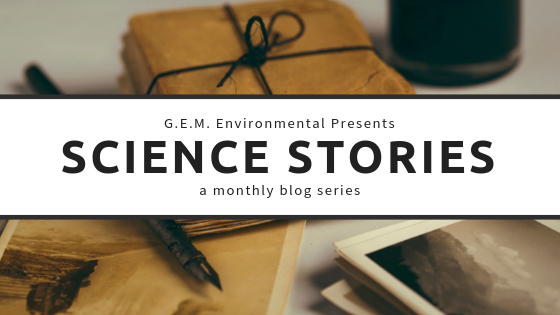
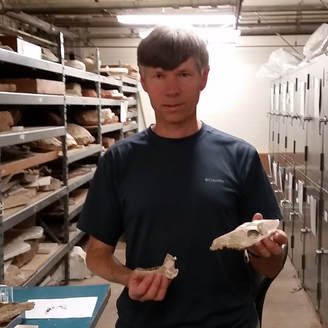
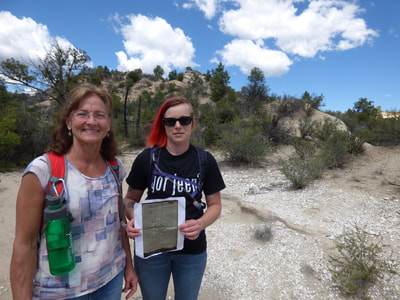
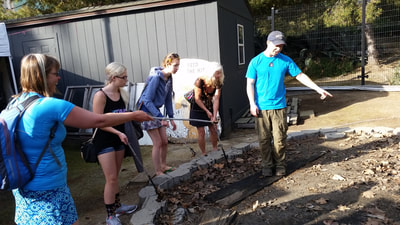
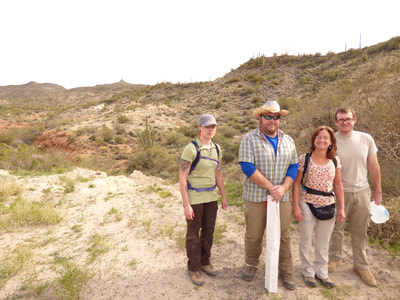
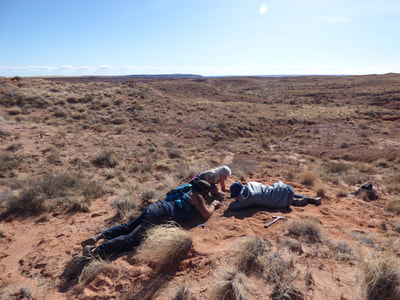
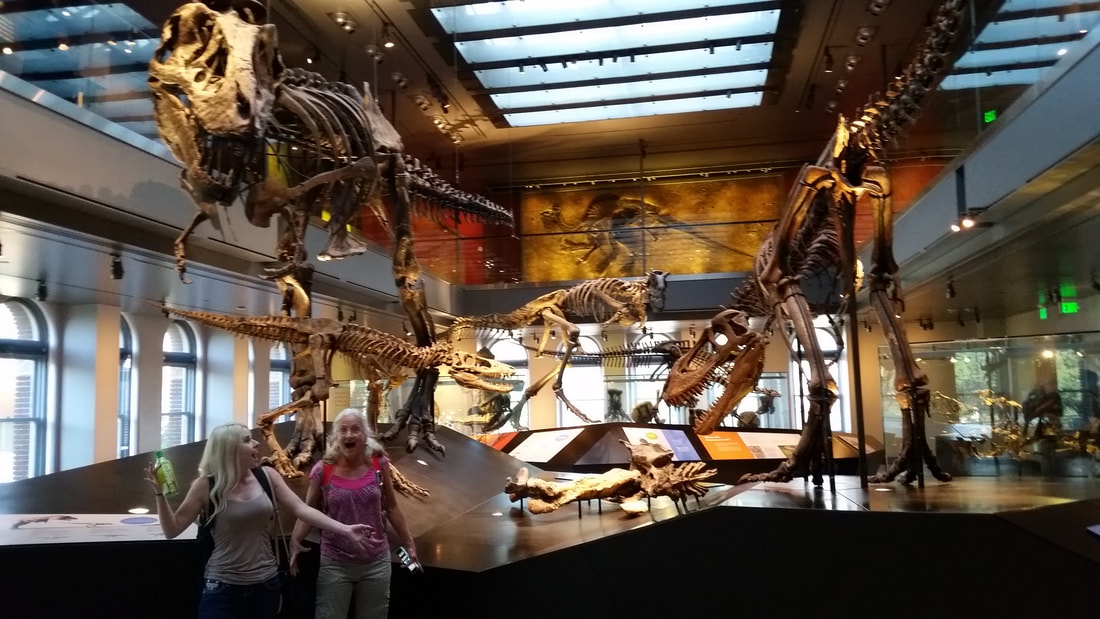
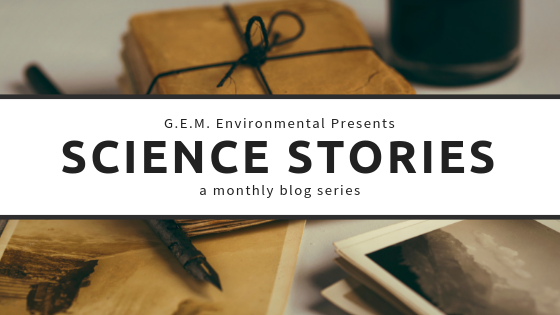
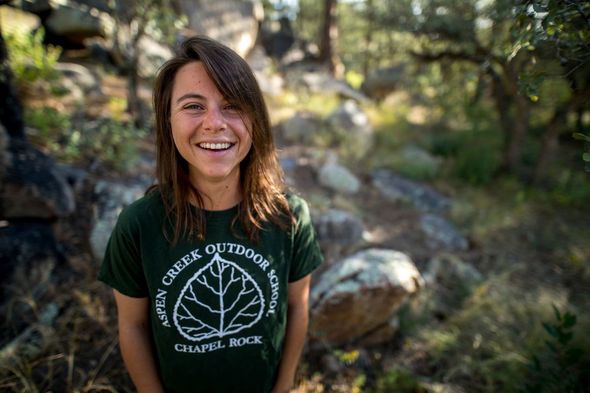
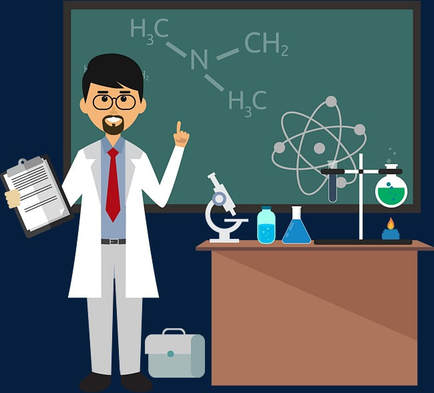


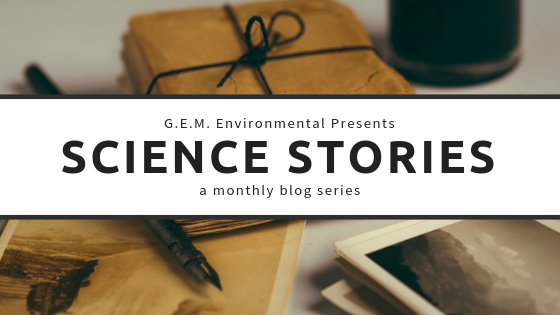
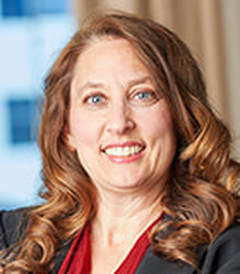
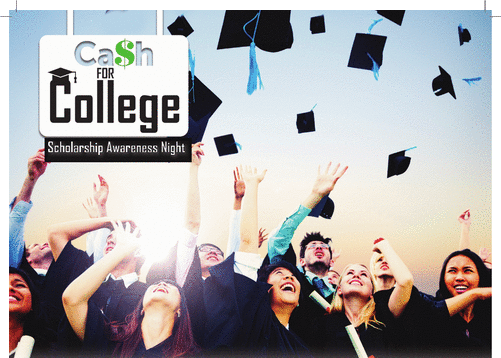
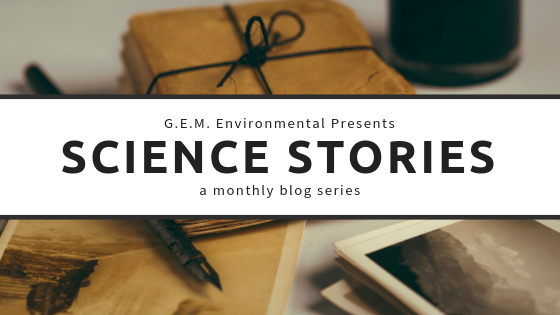
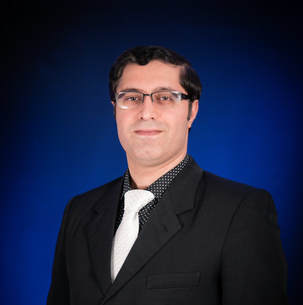
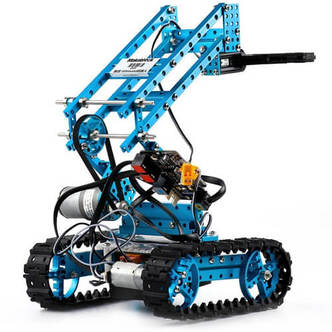
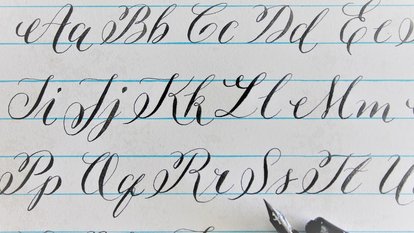
 RSS Feed
RSS Feed

